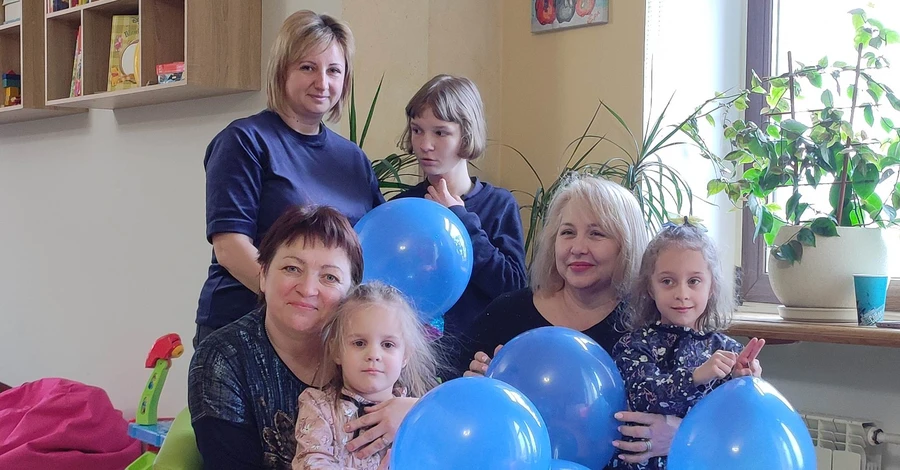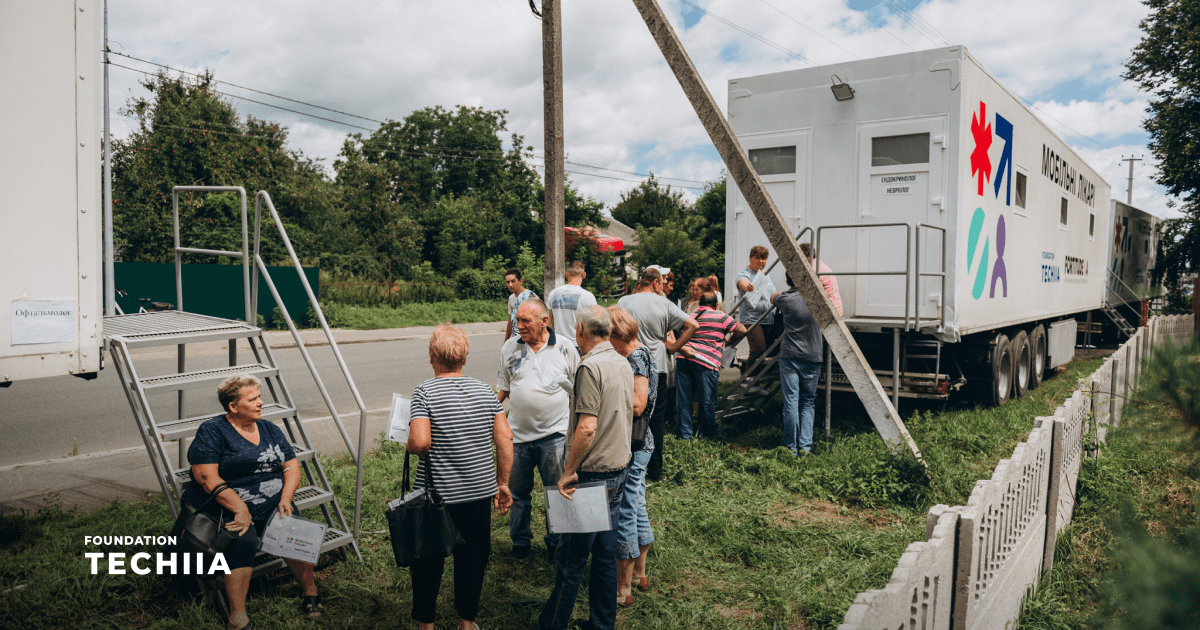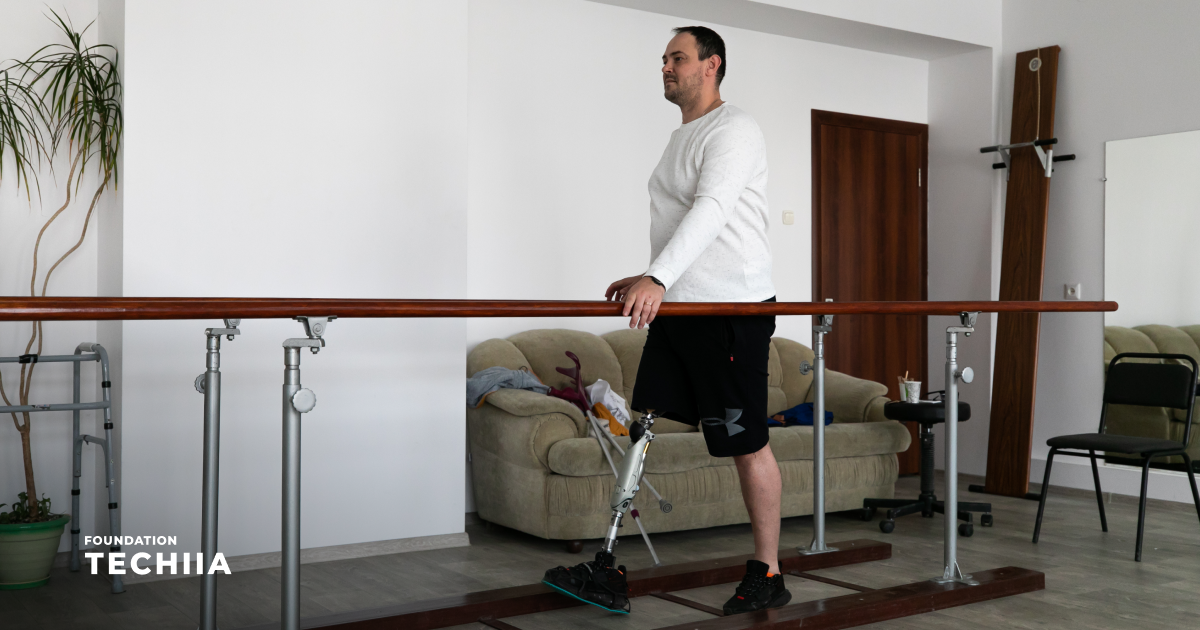Four Principles for Corporate Social Responsibility Projects
Experience of the "Techiia Foundation", a public organization founded by the owners of the international holding company TECHIIA.

There is no bad charity, especially during a full-scale war. I don't know of any Ukrainian entrepreneur who hasn't converted a portion of their earnings or talents for the benefit of the defenders or victims of russian aggression. At the same time, I often see how companies approach the distribution of social efforts chaotically, even when they have the opportunity to address a significant societal challenge.
Through this text, I want to share the principles that we established during the creation of the “Techiia Foundation” four years ago and which remain relevant during russia's full-scale war against Ukraine.
For all projects seeking to be part of the Foundation's scope, we apply a set of four criteria. Below, I will elaborate on each of them separately with examples.
1. Scalability
From various options, we choose projects that reach as many people as possible. Therefore, for example, we do not take on projects that require sending one child for treatment to Israel, Germany, or the USA but rather look at how we can systematically help many. An added preference is given if the implementation involves Ukrainian experts.
With this intention, in 2019, we launched the "Get Well Soon” project to assist hospitals. Its initial goal was to conquer childhood cancer in Ukraine. As a pilot, we took under our care the neurosurgery department of a children's regional hospital in Kropyvnytskyi, gradually equipping it with modern equipment. The plan was simple: by updating the department, it would make it possible to perform high-quality surgeries on young patients, support Ukrainian surgical talents, and locally improve the state of medicine in the region.
On the other hand, we could have sponsored several individual treatment cases abroad. This would also have been beneficial, and I have great respect for donors who take on such work. Unfortunately, we did not see how to scale this model effectively and not drain money and medical expertise from Ukraine.
Later, thanks to connections with foundations, we became involved with the Inclusion and Correction Center "Eva,” located near Kyiv. It became another piece of the puzzle. The Center specializes in the rehabilitation of children who have undergone complex cancer treatment or have diagnoses such as ASD, cerebral palsy, Down syndrome, Rett syndrome, Williams syndrome, and other developmental disorders and musculoskeletal system impairments. The work is conducted in courses, and in September, the 11th group will start. Since March 2021, all of its activities have been funded by the "Techiia Foundation."

Scalability is not necessarily about thousands of beneficiaries. But it is definitely about the desire to transform isolated experiences into a system.
2. Longevity
The potential for a project to have a long lifecycle is another advantage in the selection process. That's why in the "Recover Faster" project, we gradually expanded the list of regional hospitals we assist with equipment upgrades. Equipment such as tables, stretchers, state-of-the-art surgical instruments, and devices amortizes over the years and consistently benefits patients. The "Eva" Center also operates on a stable basis because only systematic work with young patients and the transfer of necessary skills to parents yield high results and literally get children back on their feet.
Another project with a long-term perspective that the "Techiia Foundation" joined this summer is "Mobile Doctors." Within its framework, we financed the creation of three mobile ambulatory complexes that travel to occupied communities and help provide high-quality medical services to their residents. These mobile units can be used for a very long time. And when (if) the project no longer requires them, we will be able to repurpose the mobile clinics for other tasks, which will undoubtedly be needed in Ukraine during and after the war.

3. Relevance
We carefully assess how quickly assistance will reach people. This is evident when it comes to equipment for hospitals. For example, several years ago, the "Techiia Foundation" purchased a multifunctional operating table for a hospital in Bila Tserkva, where accident victims from accidents on the Kyiv-Odesa highway often end up. The old twenty-five-year-old table was finally disposed of, and the new one immediately went into operation, greatly facilitating the work of surgeons.
An ongoing project that started in 2023 is prosthetic funding. Initially, following our other principles, we considered launching the production of modern prosthetics in Ukraine. However, the budget and deployment timelines far exceeded our capabilities. Therefore, the "Techiia Foundation" focused on targeted funding of cases where military personnel, due to bureaucratic reasons, cannot obtain quality lower limb prosthetics from the state or require bionic upper limb prosthetics. We study their stories and make decisions in collaboration with partners. Three beneficiaries have already received assistance, and several more are in line for this year.

In the prosthetic project, we invite other businesses to get involved. Unfortunately, due to russia's aggression, a significant number of Ukrainian military and civilians already need and will continue to need quality prosthetic services, but there aren't enough funds available. No single company or initiative can bear such a burden alone. However, if many companies allocate a portion of their CSR budgets for two or three specific cases, the task appears realistic. Moreover, this is a very clear and necessary cause right now and for years to come.
4. Urgency
Projects that address an immediate problem take the highest priority. For example, before the big war, we responded more quickly to the urgent need for equipment in high-capacity hospitals because its absence was impeding the entire chain of patient care.
The aggression from russia has also had an impact here. Since March 2022, the project "Supporting the Freedom of Ukraine" remains the largest in terms of funds invested. No explanations are needed here: without freedom, there is nothing.

The "Techiia Foundation" is managing this project comprehensively. We haven't simply transferred funds to other organizations; instead, we've engaged volunteers who purchase equipment from direct suppliers at the optimal price, deliver it to Ukraine, and distribute it to those who need it. Since 99% of the project's funds come from our founders, Oleg Krot and Yura Lazebnikov, we can track the movement and effectiveness of every hryvnia and ensure the speed of delivery to units.
We also independently execute prosthetic projects, searching for contractors, conducting negotiations, and overseeing the process. Even in the "Mobile Doctors" project, we worked closely with the Fortitude Foundation to be informed about every aspect, from purchasing vehicles and medical equipment to transforming trucks and planning deployments.
In conclusion, I want to emphasize that these principles are not rigid requirements but rather guidelines. There is no one-size-fits-all rule that covers every aspect of life, especially during a major conflict. However, these basic rules provide initial guidance, which is particularly essential if you are managing CSR budgets for a large company and genuinely want to improve the lives of your community, society, or country.
Source: Obozrevatel

